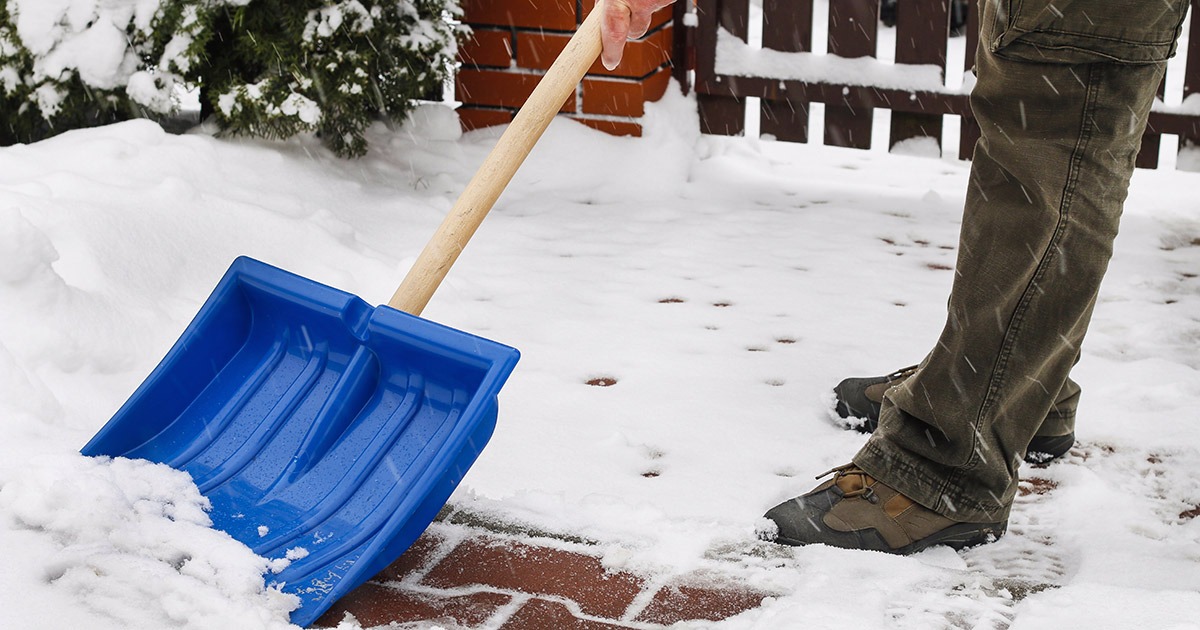- 1. Beware the Christmas Tree
- 2. Don't Overload Your Circuits
- 3. Take Care of Your Candles
- 4. Secure Your Doors
- 5. Be Aware of Online Shopping Fraud
- 6. Burn Only Logs in Your Fireplace
- 7. Keep Pets Safe from Toxic Holiday Decorations
- 8. Slip-Proof Walkways
- 9. Mum's the Word Online
- 10. Have a Carbon Monoxide Detector

It’s the most wonderful time of the year… until someone gets hurt.
Accident statistics during the holidays indicate that Christmas and New Year’s Day are some of the most dangerous times of the year.
Don’t let your winter wonderland turn into a holiday disaster. Follow these safety tips to help keep your loved ones happy and healthy.
1. Beware the Christmas Tree
Christmas trees are a fire hazard in your home, particularly if they are placed near a fireplace or furnace, if they are dry and brittle, or if they have old, worn wires on them. Water your real tree every day to keep it from getting too dry. If you have an artificial tree, check to see if it is fire resistant. Keep all trees away from sources of heat. And make sure any lights you put on them are intact and safe.
2. Don’t Overload Your Circuits
Lights, lights, and more lights! Even if you’re competing with the neighbors for the best light display, it’s best to avoid overloading your electric circuits. Keep the lights away from plugs that already power major appliances, and spread your lights out among several circuits.
3. Take Care of Your Candles
In a five-year study, the National Fire Protection Association (NFPA) found that over half of decoration-related fires were started by candles. To keep your decorations (and your house!) from going up in smoke, place lit candles at least 12 inches away from any surrounding objects, and trim the wicks to a quarter of an inch before lighting. Never leave a lit candle unattended. Having a candle in the bathroom is particularly dangerous—choose a battery-operated one instead.
4. Secure Your Doors
With bright lights and the promise of expensive holiday gifts in the house, burglaries can go up around the holidays. Make sure your doors and windows are secure and locked.
5. Be Aware of Online Shopping Fraud
With more people shopping online this year, there is an even higher risk of fraud. When you shop, check carefully to be sure the web address is spelled correctly. Some fraudulent websites are set up to look similar to popular, trustworthy sites specifically to trick you out of your credit card number.
You also want to be sure the payment page begins with the letters “https” as the “s” stands for secure. Shopping only on trusted sites will also help reduce your risk that someone will steal your information.
Finally, never click on a link from an unsolicited email, no matter how tempting.
6. Burn Only Logs in Your Fireplace
If you have a fireplace, make sure you’re burning only the proper fuel in it. Don’t toss wreaths or evergreens into it, as they burn much faster than logs and create sparks that can start a house fire. Wrapping paper, too, can contain metallic materials that could release toxic fumes into the air. Of course, always make sure your fire is out and cool before you go to bed.
7. Keep Pets Safe from Toxic Holiday Decorations
Holly, mistletoe, and poinsettias are toxic to dogs and cats when ingested. Sugar-free candy canes or any other type of candy or gum made with xylitol are also poisonous to dogs. Cats may be attracted to shiny tinsel, but if they eat it, it could cause serious digestive problems.
8. Slip-Proof Walkways
Snow and ice create safety hazards in the winter, making it easy for you to fall and hurt yourself only a few feet from the front door. Keep your walkways and driveway clear of ice and snow, and use an ice-melting product when needed. Here’s a tip: throw salt on your sidewalks and driveway before it snows, as it will help keep them from icing over.
9. Mum’s the Word Online
If you’re going to travel for the holiday, resist sharing your plans online. Burglars frequently check social media sites to find easy targets. Wait until you get back from your tip to share any photos, and have a friend or neighbor check on your home while you’re gone.
10. Have a Carbon Monoxide Detector
The Centers for Disease Control and Prevention (CDC) states that carbon monoxide (CO) exposures and poisonings occur more often during the fall and winter because people are more likely to be using their gas furnaces and heaters. You can prevent disaster by purchasing a carbon monoxide detector and installing it in your home.


